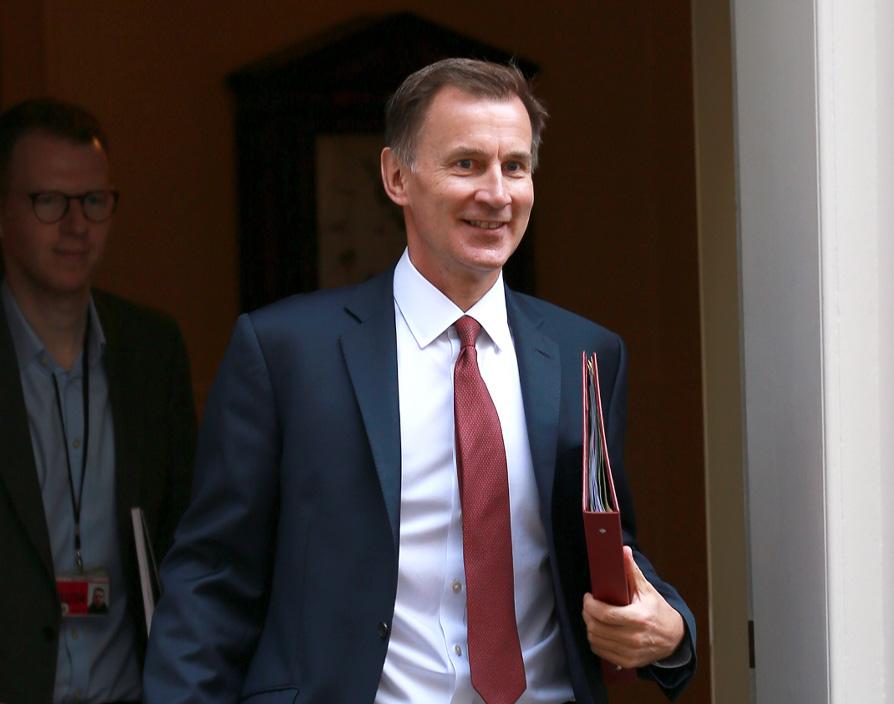Chancellor Jeremy Hunt has declared a boost to businesses in a series of measures including tax cuts in what he calls the “Autumn statement for growth”. The chancellor laid out plans to reduce inflation and increase business investment by around £20 billion a year as he announced plans to unlock growth and boost productivity. In a statement this afternoon, Hunt said: “Our choice is not big government high spending, high tax, because we know that leads to less growth not more. Instead, we reduce debt, cut taxes and reward work.” In a breakthrough for SMEs, small firms will receive a £4.3bn tax break through a freeze on business rates. The 75% discount on business rates – the tax paid on non-domestic properties – of up to £110,000 for firms in retail, hospitality and leisure will be extended for another year.
Mr Hunt claims this will save the average independent pub more than £12,800 next year. All alcohol duty will be frozen until August. In a boost to workers, Mr Hunt announced plans to cut national insurance from 12% to 10% by January, in what he described as the largest in modern British history. The cut would save an average worker £450 a year. He also announced plans to slash national insurance contributions for the self-employed which is said to be worth £350 a year, benefiting almost 2 million people. Hunt said he would also reform and simplify taxes for the self-employed by abolishing class 2 national insurance for almost 2 million people. Meanwhile, Class 4 national insurance will be cut from 9% to 8% on earnings between £12,570 and £50,270.
The chancellor said the measures taken in the autumn statement would include steps to speed up planning approvals, subsidies for manufacturing and new investment zones in the West Midlands, East Midlands and Greater Manchester, while a second investment zone will also be set up in Wales, creating approximately 65,000 news jobs for skilled workers. A further £500m will be invested over the next two years to fund further “innovation centres to help make us an AI powerhouse”, Mr Hunt said. In addition, a “new, simplified” tax relief for research and development will combine the existing R&D Expenditure Credit and SME schemes. Through that merged scheme, Mr Hunt said he would also cut the rate at which loss-making companies are taxed from 25% to 19%. Putting forward plans to help businesses, Hunt has declared to make “full expensing” permanent. This allows businesses to deduct all their spending on IT equipment, plant or machinery from taxable profits and was introduced as a temporary measure in March. The scheme, which was due to expire in 2026, will now be made permanent.
Mr Hunt also announced plans to crack down on lengthy planning applications being granted to businesses. The chancellor said he would allow local authorities to recover the full costs of major business planning applications if they meet guaranteed faster timelines. But if they fail, businesses will be refunded in full and have their planning application processed free of charge. Commenting on the Autumn budget, Tina McKenzie, Policy Chair at the Federation of Small Businesses (FSB), said: “Jeremy Hunt has today taken very welcome action on late payments, small businesses’ rates, and self-employed taxation. Small businesses – and the 16 million people who work for them – are the route to future growth that will raise living standards across the whole country. The Chancellor and his Treasury team deserve credit for driving pro-small business change and for listening to and working closely with FSB and its small business members to address the real concerns of businesses, and acting to help build future prosperity.”
However, some business leaders believe the issue of late payments must be met with more urgency. Alex von Schirmeister, UK Managing Director, Xero said: “The mental and financial strain that late payments cause business owners has to end immediately. We’ve been pushing for action on this for years but for every day that goes by, more businesses are going under. We needed to see more teeth shown on this issue and more urgency. We wanted it to be a final warning to big businesses who sit on suppliers’ cash. Let them know it’s not a late payment, it’s unapproved debt.”
Chiming from the same hymn, Roan Lavery, co-founder and CEO of FreeAgent, said: “I would have liked to see the Chancellor be much bolder about the late payment issue by giving greater powers to the Small Business Commissioner to clamp down on all late payers or by mandating the Prompt Payment Code. It’s also a shame that there were no new measures introduced to help SMEs get better access to finance to grow their ventures, or additional financial support offered to those still struggling to deal with inflation and the cost-of-living crisis. Nevertheless, this is still the most positive Autumn Statement or Budget that there has been for small businesses in quite some time. The SME sector is the backbone of our economy, so it’s gratifying to see it finally getting some good news for a change.”
Damon Anderson, UK MD at Employment Hero, insisted that an increase in national wage will inevitably affect small businesses from affording to recruit talent. He said: “Small firms are also struggling to recruit. The age change for the national living wage and the largest boost to the minimum wage ever will make some SMEs struggle to afford new staff. Our research shows this is an issue across the SME sector – from small shops to white collar firms who are seeing staff use them as a ‘salary springboard’ to higher-paid jobs at larger companies.”
Barret Kupelian, Chief Economist at PwC, said despite the tax cuts doing the ‘heavy lifting’, it is still not enough to grow the economy long-term. “The overall focus of the Autumn Statement was on “growth”– with the Chancellor using the word more than twenty times– and how productivity is central to this,” Kupelian said. “However, the journey to faster and more sustainable productivity growth requires economy-wide structural changes, not just tax changes. So, despite the policies announced today, the OBR thinks that growth in the UK will drop from a five-year average of 1.6% a year to 1.3%.”
Share via:








































